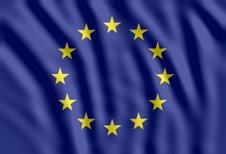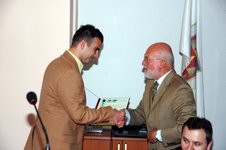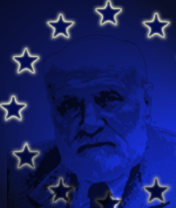
as a Libertarian tendency
Inspired by the progressive spirit of the Manifesto of Ventotene and its idea of Freedom and
According to the Manifesto, “…Modern civilization has taken the principle of freedom as its basis, a principle which holds that man must not be a mere instrument to be used by others but an autonomous centre of life…” therefore, the Freedom and Liberty of the individual is the most important element into the process of creating an European Federal state, creating the New Europe. The essence of this sentence is the Freedom and
In the text below, I will present the meaning of Libertarianism as a tendency and evolutionary basis for the further development of the Euro-federalist idea. This idea should be canalized into the direction to defend, prevent and articulate the fundamental interest of the individual vis a vis the future European state. That fundamental interest includes Freedom and
So, the Euro-federalism it is not an idea for creating a European super state, or other total and centralized state. It’s an idea for creating a “goodwill state” which will be able to recognize and respect the dignity of all peoples. The recognition of dignity, mean recognition and respecting for the man basic needs, the need for self-expression and self-confirmation in the society despite the authority of the state. These two values are the source of Freedom and
Previous trinity of terms is the sub elementum of Libertarian political philosophy. Libertarianism is generally considered a concept of political philosophy and identifies the condition in which an individual has the ability to act according to his or her own will. This political philosophy proclaims the principle of progressive individualism. Progressive individualism presupposes an associative / altruist individualism, based on
I say associative / altruist individualism, because every individual has the absolute freedom to live in a community or be part of an organization whose values or culture are closely related to what one wants; or on a more basic level, to associate with any individual one chooses.
Accordingly, individuality can be described as “the consciousness of the individual as to what he is and how he lives”, while individualism means “each individual has the right to exercise maximum influence over all matters which concern him/her, limited necessarily by the rights of other individuals”. The limitation of influence, by the rights of the other individuals, is derived from the consciousness, which is produced by dignity itself.
The meaning of
Consequently, the individual, individuality and the individualism in general from the Libertarianism is transmitted into Euro-federalism by the principle of subsidiarity. The principle of subsidiarity is the main pillar of the Euro-federalist idea. Through the subsidiarity, the Euro-federalism could achieve his own goal.
Per definitionem, subsidiarity is the principle “which states that matters ought to be handled by the smallest (or, the lowest) competent authority”. That competent authority is the individual itself. According to the Manifesto of Ventotene, the man, the individual, should be an autonomous centre of life. So, the subsidiarity is the best road to affirmation and confirmation of the individual into the New Europe.
In practice, the principle of subsidiarity could realize itself through: devolution, decentralisation and deconcentration of the political power, localism, municipalism, regionalism e.t.c. This principle is consistent with the various types of democracy, which allowed full participation of the individual in the decision-making process, especially grassroots democracy, participative democracy or direct democracy, because they could provide a political satisfaction for all the individuals at all layers and levels in the Federal Europe - The New Europe.
That means, a tendency directed towards designing political processes where as much decision-making authority as practical is shifted to the state's lowest geopolitical level and all decisions in society shall not be made on a higher level than necessary.
So that, the main significance of the principle of subsidiarity, is enabling a political opportunity for the individual to achieve its intentions, needs and above all, his self-expression and self-confirmation in the society of the New Europe, as conditio sine qua non for reaching the Freedom and Liberty.
But why a Libertarian tendency of Euro-federalism? Because that is a philosophy of a new social order based on the released energies of the individual and free association of liberated individuals. Because there is no individuality without
The struggle for the New Europe must be a struggle for Freedom and
Goran Ilik








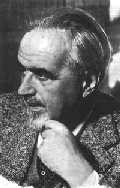


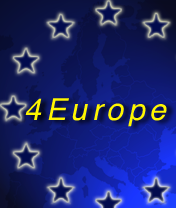



![The first anti-visa street campaign in Macedonia, Bitola: 13 october 2006 [posters]:](http://photos1.blogger.com/x/blogger2/2890/390186873737650/226/z/666164/gse_multipart44564.jpg)
